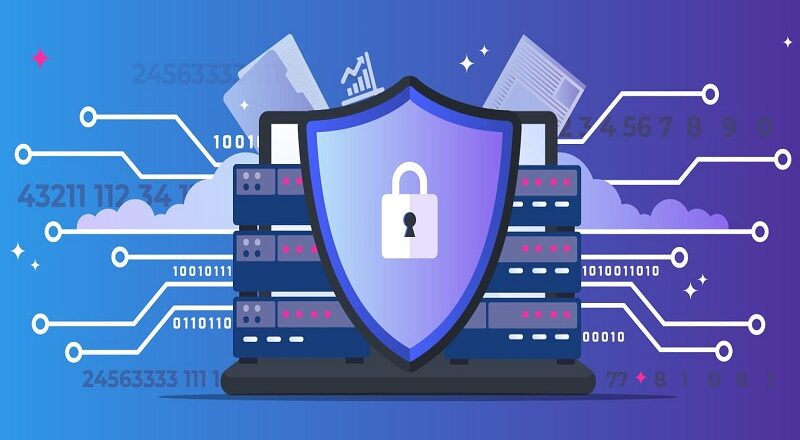Enhancing Business Security: The Role of Blockchain in Data Privacy
In an era marked by escalating cyber threats and phishing attacks, businesses grapple with the imperative to fortify their processes against relentless hackers. Amidst the rising stakes of financial and reputational losses, organizations are increasingly turning to technology for solutions, with blockchain emerging as a formidable tool for ensuring data privacy. This article explores the manifold reasons why leveraging blockchain for data privacy is a strategic move for businesses and how the technology addresses critical business security issues.
Elements Fortifying Blockchain Data Privacy
Understanding the core components that empower blockchain to uphold data privacy is crucial. The technology’s foundational principles, including an immutable architecture and trustless nature, lay the groundwork for robust data security.
1. Blocks and Hashing
- Blockchain organizes data into timestamped, signed blocks interconnected through a cryptographic hash of the preceding block.
- This structure ensures data immutability, forming the backbone of blockchain data protection.
2. Distributed Architecture
- Blockchain operates on a decentralized model with no single point of failure, dispersing risks across a wide network of nodes.
- This distributed nature makes it extremely challenging for attackers to target and compromise the data.
3. Consensus Validation
- Modifying a block requires consensus from authorized members, adding a layer of business security.
- Changes are transparently broadcast to all network members, preventing stealthy attacks.
4. Encryption
- Blockchain employs robust encryption methods, including asymmetric-key algorithms and hash functions, ensuring data is unreadable to unauthorized users.
- Each node contributes to maintaining the overall business security of the network.
5. Public Addresses
- Every node possesses a private key and a public address, sharing only the latter during transactions.
- This cryptographic approach enhances privacy by concealing sensitive details within the private key.
Use Cases of Blockchain Data Privacy for Businesses
Understanding how blockchain translates its privacy features into practical business use cases is crucial for business owners seeking increased efficiency and business security. Here are prominent use cases demonstrating the efficacy of blockchain data privacy solutions:
1. Secure Messaging:
Ensuring Confidentiality in Communication
Blockchain’s impact on secure messaging extends beyond traditional encryption methods. By facilitating fully transparent and censorship-resistant messaging platforms, businesses can achieve a heightened level of confidentiality in their communication channels.
Example:
Messenger apps like Wispr, leveraging the Voice Over Blockchain Protocol (VOBP), redefine secure messaging. The integration of encryption protocols like AES-256 ensures not only end-to-end encryption but also a robust shield against potential breaches, offering businesses a secure environment for sensitive communications.
2. IoT Security:
Fortifying Connected Environments
The integration of blockchain with the Internet of Things (IoT) goes beyond enhancing security; it fundamentally transforms the way businesses manage and secure their connected devices. Real-time tracking, data encryption, and decentralization contribute to a fortified IoT security framework, protecting against unauthorized access and potential breaches.
3. Secure DNS and DDoS Protection:
Safeguarding Digital Infrastructure
Blockchain disrupts the traditional DNS landscape by decentralizing entries, presenting a formidable defence against both Distributed Denial of Service (DDoS) and DNS attacks. Eliminating centralized points not only enhances security but also diminishes vulnerabilities exploited by attackers. This approach provides businesses with a resilient digital infrastructure.
4. Immutable Data Storage:
A Decentralized Fort Knox
Blockchain’s decentralized data storage paradigm serves as a digital fortress against data breaches commonly associated with centralized platforms. By ensuring that data is stored in a transparent and decentralized manner, blockchain enables businesses to establish a robust and secure data storage system. Access is restricted to authorized users, mitigating the risk of unauthorized breaches.
5. Provenance of Software:
Verifying Integrity in Updates
The hashing methodology employed by blockchain plays a pivotal role in verifying the authenticity of software downloads, updates, and patches. This mechanism acts as a digital seal of approval, assuring businesses that the source of the software is legitimate. Tracking software updates on the blockchain enhances business security measures, preventing unauthorized downloads and potential threats posed by malicious sources.
6. Ownership Validation:
Enhancing Trust and Security
Blockchain establishes an immutable record of authenticity, providing a secure foundation for ownership validation. Through Distributed Ledger Technology (DLT), businesses can facilitate Know Your Customer (KYC) processes, ensuring identity verification. This not only minimizes data exposure but also eliminates the risk of identity theft, contributing to robust sensitive data protection measures.
Incorporating blockchain data privacy solutions into these specific business use cases empowers organizations to navigate the complexities of the digital landscape securely. By understanding and leveraging the unique features of blockchain, businesses can stay ahead of evolving cybersecurity challenges.
How We Secure Your Data Using Blockchain
When organizations seek our blockchain development services, our priority is minimizing downtime and ensuring scalability. Our approach involves understanding your business requirements, identifying vulnerable points, and crafting blockchain solutions tailored to your organization’s security needs. We prioritize security-first blockchain platforms to thwart potential hacks and data breaches, resulting in dApps with zero instances of business security lapses.
In conclusion
Leveraging blockchain for data privacy is not just a trend but a strategic imperative for businesses navigating the complex landscape of cybersecurity threats. Integrating blockchain data protection into your processes can provide an effective shield against evolving cyber risks. Connect with us to explore how blockchain can enhance the business security of your data.




